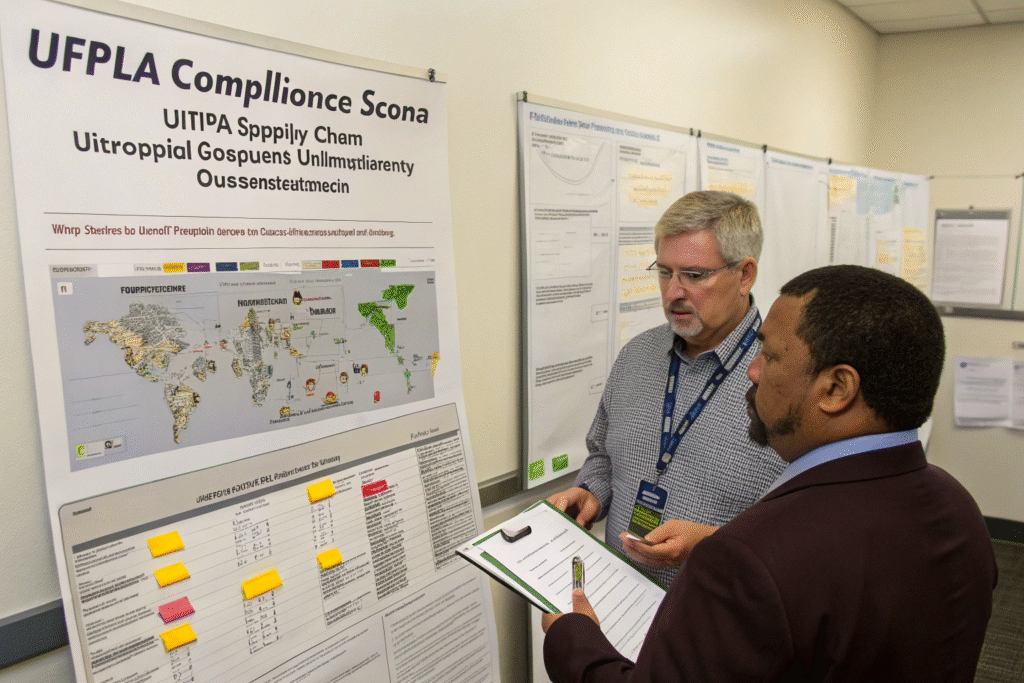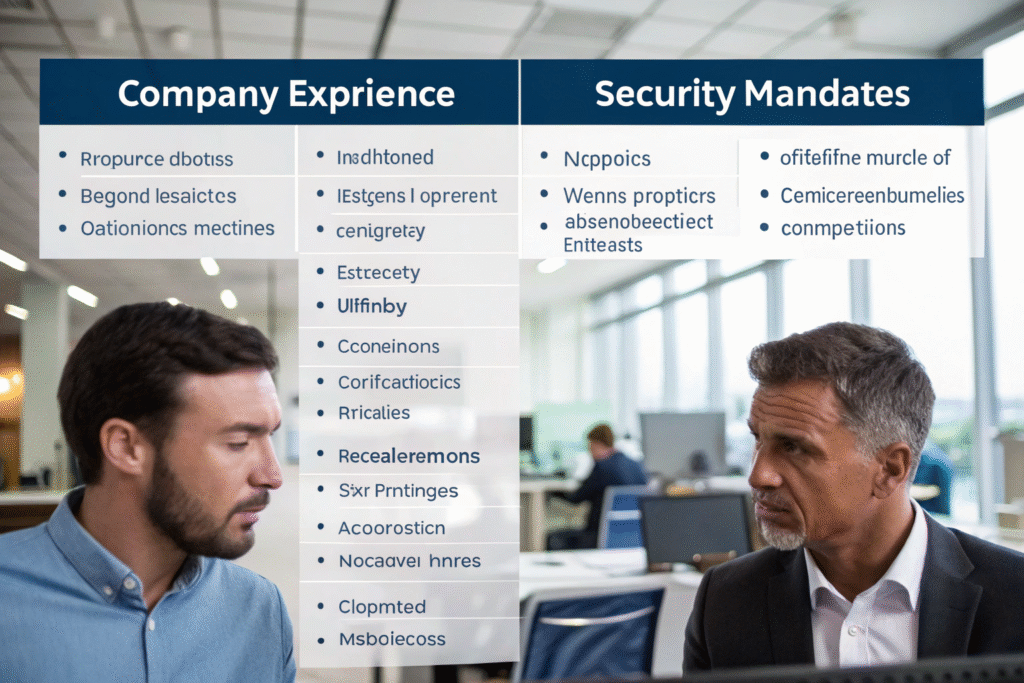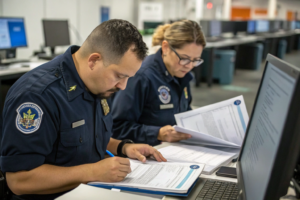US cargo security regulations have evolved significantly in response to emerging threats, technological advancements, and supply chain vulnerabilities. Importers who haven't reviewed their security compliance recently may face unexpected delays, examinations, or penalties. Understanding these mandates is crucial for maintaining smooth supply chain operations and avoiding costly disruptions.
The latest security mandates for US-bound cargo include enhanced Importer Security Filing requirements, stricter enforcement of the Uyghur Forced Labor Prevention Act, updated C-TPAT certification standards, new cybersecurity protocols for supply chain partners, and advanced electronic data requirements for all modes of transportation. Compliance now requires more detailed documentation and earlier submission timelines.
Let's examine the specific requirements, implementation timelines, and compliance strategies for these evolving security mandates that affect all US-bound shipments.
How have Importer Security Filing requirements evolved?
The Importer Security Filing (ISF-10) requirements have expanded beyond the original "10+2" framework to include more detailed data elements and earlier submission timelines. These changes aim to provide Customs and Border Protection with better risk assessment capabilities before cargo loading.
The core ISF-10 still requires 10 data elements from importers, but now demands greater accuracy and earlier submission—now 48 hours before loading for ocean shipments rather than 24 hours. New enforcement emphasis targets consistent late filings and data inaccuracies. Additionally, CBP has enhanced their targeting algorithms using ISF data, meaning incomplete or inaccurate filings significantly increase examination probability. The penalty structure has also evolved, with fines now reaching $10,000 per violation for repeat offenders or intentional non-compliance.

What specific ISF data elements face increased scrutiny?
High-scrutiny ISF elements include:
- Manufacturer name and address requiring complete supplier information
- Seller name and address with verified business entity details
- Container stuffing location with specific facility addresses
- Consolidator name and address for LTL shipments
- Importer of record number verification against IRS records
- Harmonized Tariff Schedule numbers at 6-digit level with greater accuracy
These elements now undergo automated verification against multiple government databases.
How can importers ensure ISF compliance amid tighter timelines?
Effective ISF compliance strategies:
- Supplier data collection during order placement rather than before shipping
- Automated validation systems checking data completeness before submission
- Advanced document processing using AI to extract required information
- Supplier compliance training ensuring they understand data requirements
- Regular audit processes identifying and correcting recurring errors
- Customs broker coordination establishing clear responsibility divisions
These approaches prevent the timing and accuracy issues that trigger penalties.
What does the Uyghur Forced Labor Prevention Act enforcement entail?
The UFLPA represents one of the most significant recent security mandates, creating a rebuttable presumption that goods mined, produced, or manufactured wholly or in part in China's Xinjiang Uyghur Autonomous Region are prohibited from importation into the United States. Enforcement has intensified throughout 2024 with expanded scope and documentation requirements.
The enforcement mechanism requires importers to provide clear and convincing evidence that goods were not produced using forced labor. This demands comprehensive supply chain mapping to raw materials, detailed documentation of labor conditions, and independent verification of compliance. The scope has expanded beyond direct Xinjiang sourcing to include components and materials that might originate from the region. CBP has significantly increased detentions and examinations, particularly for high-risk sectors like polysilicon, cotton, tomatoes, and PVC.

What documentation satisfies UFLPA due diligence requirements?
Comprehensive UFLPA documentation includes:
- Supply chain mapping to raw material level for all components
- Labor condition audits by independent third-party verifiers
- Payment records demonstrating fair wage practices
- Production records showing manufacturing locations and dates
- Transportation documents tracing material movements
- Financial transactions verifying legitimate business relationships
This documentation must create an unbroken chain of custody and compliance evidence.
How can importers build UFLPA-compliant supply chains?
UFLPA compliance development:
- Supplier vetting processes including forced labor screening
- Supply chain transparency requirements in supplier contracts
- Independent audit programs verifying compliance claims
- Alternative sourcing development for high-risk materials
- Documentation systems maintaining required evidence
- Legal review processes ensuring compliance strategy effectiveness
Proactive compliance development prevents shipment detentions and reputational damage.
What are the updated C-TPAT certification standards?
The Customs-Trade Partnership Against Terrorism program has evolved from basic security standards to comprehensive supply chain security requirements with stricter validation processes and expanded benefits for certified members. The 2024 standards reflect increased cybersecurity threats and broader security concerns.
Tier III certification now requires implementation of cybersecurity protocols protecting supply chain data systems, enhanced physical security measures for all facilities in the supply chain, stricter access controls for personnel and visitors, comprehensive security training programs for employees, and advanced tracking technology for high-risk shipments. The validation process has become more rigorous, with on-site audits examining actual implementation rather than policy documentation. However, certified members receive significant benefits including reduced examinations, priority processing, and penalty mitigation.

What new cybersecurity requirements affect C-TPAT members?
Mandatory cybersecurity protocols include:
- Network security measures protecting supply chain data systems
- Access control systems limiting data access to authorized personnel
- Encryption standards for sensitive supply chain information
- Incident response plans for cybersecurity breaches
- Vendor security requirements for all supply chain partners
- Regular security assessments identifying vulnerabilities
These requirements address the growing threat of cyber attacks on supply chain infrastructure.
How do C-TPAT benefits justify compliance investment?
Substantial certification benefits:
- Up to 80% reduction in CBP examinations for certified members
- Priority processing during port congestion or operational disruptions
- Penalty mitigation for inadvertent compliance errors
- Front-of-line treatment for customs processing
- Enhanced reputation as a secure supply chain partner
- Reciprocal benefits with foreign security programs
These advantages typically deliver 5-8x return on compliance investment for regular importers.
What advanced electronic data requirements now apply?
All transportation modes now face enhanced electronic data requirements providing CBP with advanced shipment information for risk assessment. These requirements have expanded in scope, detail, and submission timelines across air, ocean, and land transportation.
The Air Cargo Advanced Screening program now requires complete house-level data submission before loading for all US-bound air shipments. The Inbound International Manifest Amendment now demands more detailed vessel stowage information. The eManifest requirements for truck and rail shipments have expanded data elements. All modes now face stricter enforcement of submission timelines and data accuracy. These requirements aim to provide CBP with comprehensive visibility into US-bound cargo before arrival.

How have ACAS requirements evolved for air cargo?
Enhanced ACAS mandates include:
- House-level data submission for all air shipments before loading
- Enhanced security data including detailed consignor and consignee information
- Earlier submission timelines providing more pre-loading assessment time
- Stricter data validation with automated checks for completeness
- Carrier responsibility expansion to include all supply chain partners
- Enforcement escalation for repeated non-compliance
These changes significantly impact time-sensitive air freight operations.
What are the consequences of electronic data non-compliance?
Enforcement consequences include:
- Do-not-load orders preventing cargo boarding for US-bound vessels or aircraft
- Monetary penalties ranging from $5,000 to $10,000 per violation
- Increased examinations with enhanced scrutiny of future shipments
- Supply chain disruption from missed connections and delayed deliveries
- Carrier relationship damage from causing operational problems
- CBP attention escalation placing entire import operations under review
These consequences make compliance essential rather than optional.
How do these mandates affect different business types?
The impact of security mandates varies significantly by business size, industry, and supply chain complexity. Understanding these differential impacts helps businesses allocate compliance resources effectively.
Large enterprises typically have dedicated compliance teams and systems to manage these requirements but face greater scrutiny due to higher volumes. Small and medium businesses often struggle with resource constraints but may benefit from simplified supply chains. High-risk industries like electronics, textiles, and food face particular scrutiny for forced labor concerns. Businesses with complex global supply chains encounter challenges with transparency and documentation. Each business type requires tailored compliance approaches matching their specific risk profile and capabilities.

What compliance strategies work for small and medium businesses?
SME-focused compliance approaches:
- Focused risk assessment prioritizing highest-impact requirements
- Technology leverage using affordable compliance software solutions
- Expert partnership working with experienced customs brokers
- Industry collaboration sharing best practices and resources
- Phased implementation addressing most critical requirements first
- Government resources utilization accessing CBP guidance and support
These approaches make comprehensive compliance achievable for smaller businesses.
How should large enterprises approach these mandates?
Enterprise-level compliance strategies:
- Centralized compliance functions ensuring consistency across business units
- Advanced technology investment in comprehensive compliance platforms
- Supplier compliance integration requiring partners to meet standards
- Continuous monitoring systems tracking regulatory changes and compliance status
- Stakeholder education programs training all involved parties
- Performance metrics development measuring compliance effectiveness
Enterprise approaches focus on systematic, scalable compliance management.
Conclusion
The latest US cargo security mandates represent a significant evolution in supply chain security requirements, emphasizing earlier data submission, comprehensive documentation, and verifiable compliance. Importers must now provide more detailed information sooner, maintain complete supply chain transparency, and implement robust security measures throughout their operations. While these requirements create additional compliance burdens, they also offer opportunities for supply chain optimization and risk reduction. The most successful importers treat security compliance as a strategic function rather than an administrative task, integrating requirements into their overall supply chain management and leveraging compliance investments for operational improvements. By understanding and proactively addressing these mandates, businesses can maintain smooth US-bound shipments while contributing to broader supply chain security objectives.









